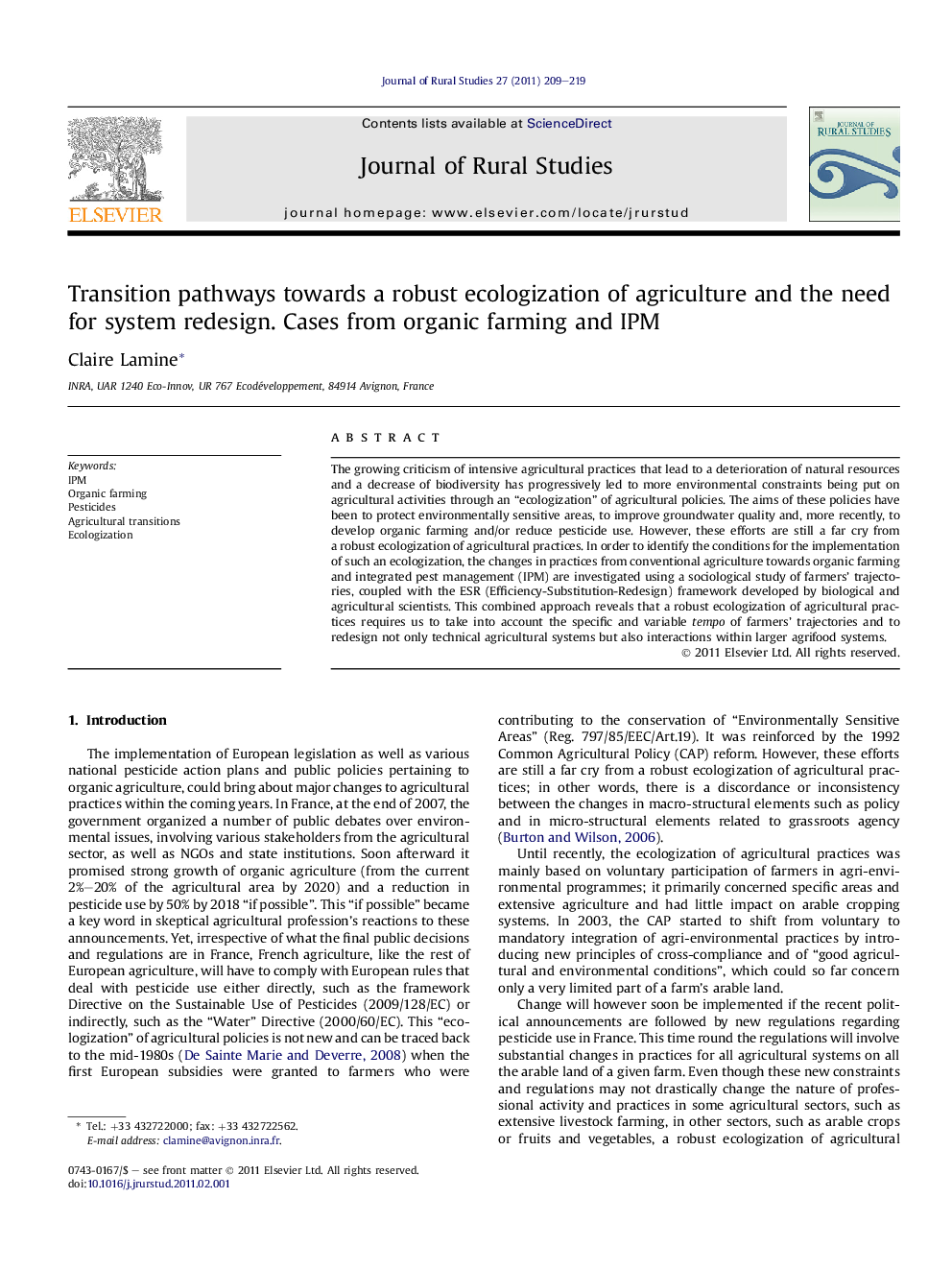| Article ID | Journal | Published Year | Pages | File Type |
|---|---|---|---|---|
| 92601 | Journal of Rural Studies | 2011 | 11 Pages |
The growing criticism of intensive agricultural practices that lead to a deterioration of natural resources and a decrease of biodiversity has progressively led to more environmental constraints being put on agricultural activities through an “ecologization” of agricultural policies. The aims of these policies have been to protect environmentally sensitive areas, to improve groundwater quality and, more recently, to develop organic farming and/or reduce pesticide use. However, these efforts are still a far cry from a robust ecologization of agricultural practices. In order to identify the conditions for the implementation of such an ecologization, the changes in practices from conventional agriculture towards organic farming and integrated pest management (IPM) are investigated using a sociological study of farmers’ trajectories, coupled with the ESR (Efficiency-Substitution-Redesign) framework developed by biological and agricultural scientists. This combined approach reveals that a robust ecologization of agricultural practices requires us to take into account the specific and variable tempo of farmers’ trajectories and to redesign not only technical agricultural systems but also interactions within larger agrifood systems.
